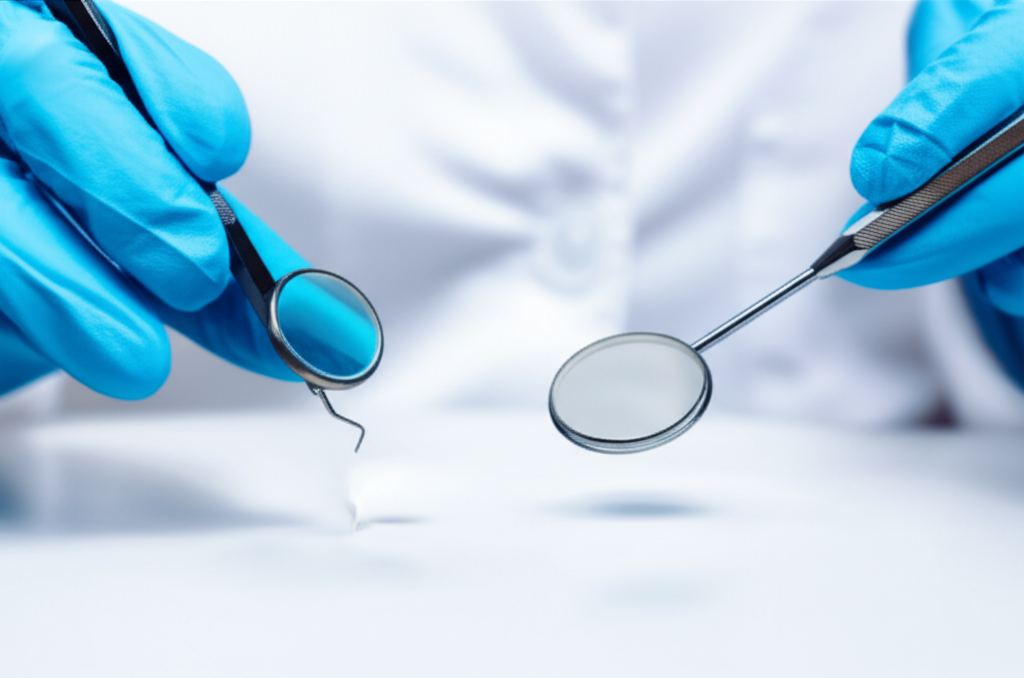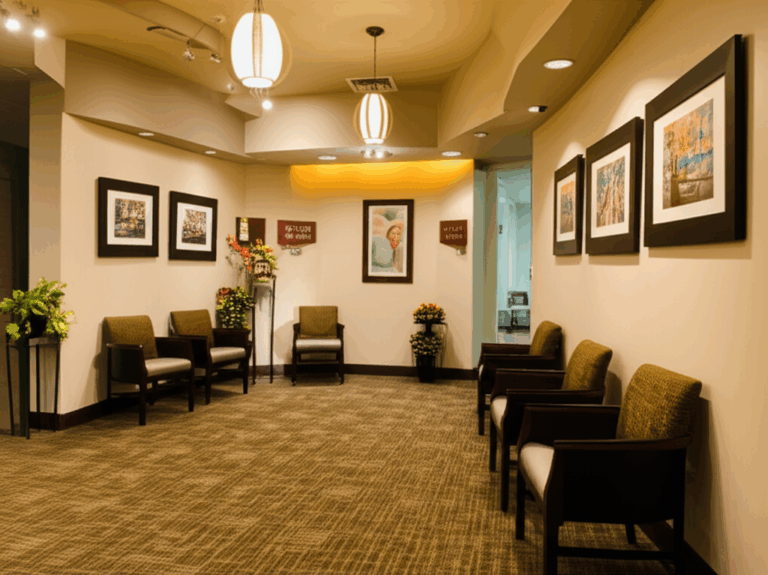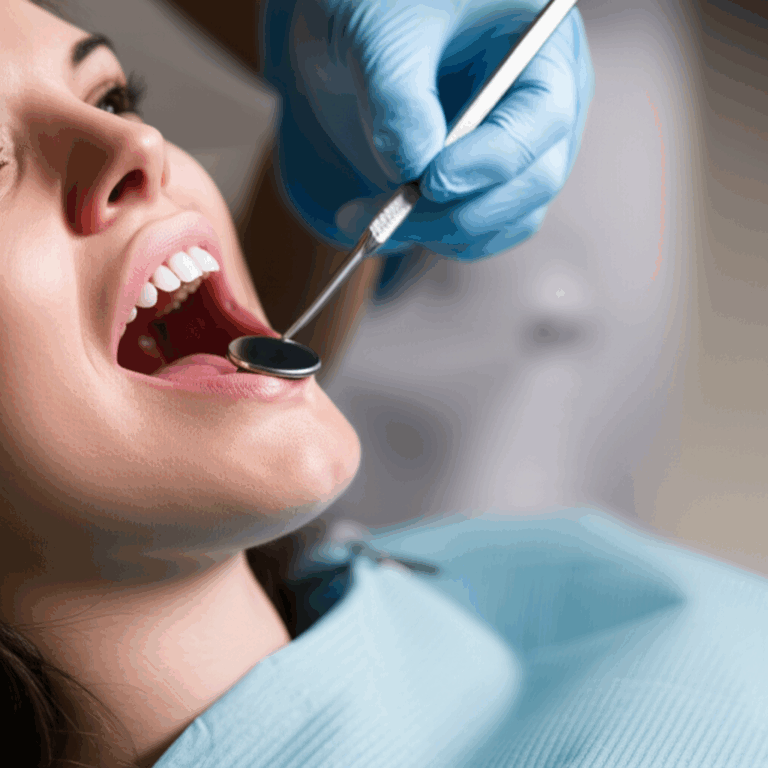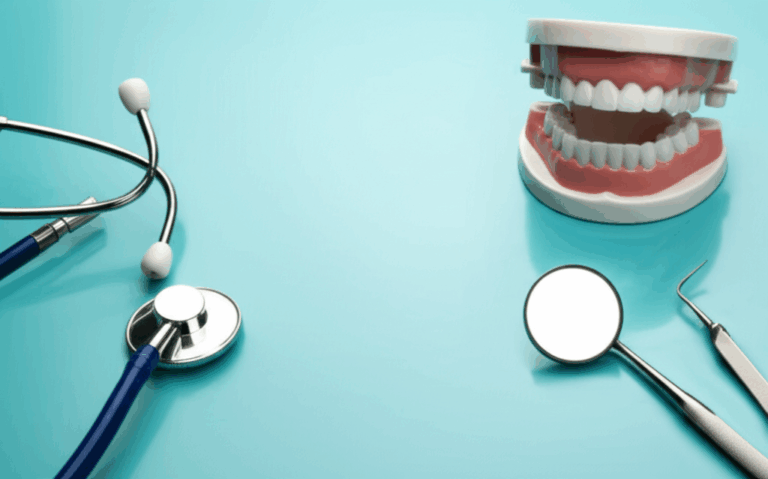
Does a Dentist Have to Be Board Certified? Understanding Dental Qualifications
Table of Contents
- What is a Dental License?
- What You Need for Licensure
- What State Dental Boards Do
- What “Board Certified” Really Means
- Who Gives Board Certification?
- How Dentists Become Board Certified
- Comparing Licensure and Board Certification
- A Simple Table of Differences
- More Skill and Knowledge
- Commitment to High Standards
- Quality Check
- Extra Comfort for Patients
- Checking the Dental License
- Checking Board Certification
- For General Dentistry
- For Complicated or Specialty Work
Introduction: My Story with Dental Credentials
Not too long ago, I needed a new dentist and quickly got lost in a sea of confusing words—licensed, board-certified, specialist, general dentist. If you’ve ever had the same feeling, you’re not alone. I asked myself, “Does a dentist need to be board certified? If not, should I worry?”
The truth is, most dentists aren’t board certified, but that doesn’t mean they’re bad. Picking your dentist is about understanding what those words really say about their training and what you can expect.
This guide comes from the things I learned and the questions I wished I’d thought of sooner. Hopefully, it will help you understand dental qualifications and make your dentist choice a little easier.
Dental Licensure: The Basic Requirement for Dentists
What is a Dental License?
Let’s start simple. Every dentist in the US has to have a dental license. No exceptions. A dental license is proof the dentist has studied enough and followed the right rules to treat patients safely.
Your state’s dental board gives out the license. Without it, even the most well-known dentist can’t legally treat anyone.
What You Need for Licensure
When I asked my family dentist, he told me what it took to get his license. Here’s what most dentists in the US need to do:
- Graduate from an Approved Dental School: They must earn a DDS (Doctor of Dental Surgery) or DMD (Doctor of Dental Medicine) degree from an approved school.
- Pass National Board Exams: Dentists need to show they know their stuff from big exams.
- Pass a State or Regional Hands-on Test: Dentists prove with real teeth and patients that they know what they’re doing.
- Keep Up with Extra Learning: Each state asks dentists to keep learning every few years to keep their license.
What State Dental Boards Do
Each state has its own dental board. The board’s job is to protect patients. They make sure dentists follow the rules, investigate complaints, and act when someone messes up. If you ever want to check your dentist’s license, your state dental board website will show you.
Board Certification: The Extra for Specialists
What “Board Certified” Really Means
Once I knew what “licensed” meant, I wanted to learn about “board certified.” Board certification is not something every dentist needs. It’s a choice. Only dentists who want to specialize, like orthodontists or oral surgeons, get board certified.
To be board certified, a dentist must show they know even more in their chosen area. Think of it as a gold star—they went further than most to prove they know their stuff.
Who Gives Board Certification?
Specialty boards give this extra certificate. Some examples are:
- Orthodontists: Approved by the American Board of Orthodontics (ABO)
- Oral Surgeons: Approved by the American Board of Oral and Maxillofacial Surgery (ABOMS)
- Periodontists: Approved by the American Board of Periodontology (ABP)
- Endodontists: Approved by the American Board of Endodontics (ABE)
- Many specialties, like prosthodontists and children’s dentists, have their own boards
When a dentist is board certified, they’re often called a “Diplomate.” It means they got this extra approval.
How Dentists Become Board Certified
Becoming board certified isn’t easy. Dentists have to:
Knowing my dentist went through this tough process gave me more trust.
Main Differences: Licensed vs. Board-Certified Dentist
Through talking to dentists and reading online, here’s what made sense to me:
- License = Green Light to Work: Every dentist needs this.
- Board Certification = Extra Proof of Skill for Specialists: Only for those in certain fields who want it.
Not every licensed dentist is board certified, but all board-certified dentists must be licensed.
Comparing Licensure and Board Certification
Here it is, plain and simple:
| Dental License | Board Certification | |
|---|---|---|
| Who needs it? | All dentists | Only specialists who want extra proof |
| Is it required? | Always needed | Totally optional |
| Who gives it? | State Dental Boards | Specialty Boards (like ABO, ABOMS, ABP) |
| Covers what? | Any kind of dentistry | Only one specialty area |
| Kept by? | Doing regular extra classes | More courses, re-tests, keeping skills up to date |
| Means what? | Dentist can treat patients safely | Knows a lot in a specialty, up-to-date skills |
Why Board Certification Matters for Patients
More Skill and Knowledge
If you need tricky dental work—implants, jaw surgery, braces—you want someone with deep, focused training. Board-certified specialists have handled many hard cases and keep learning more in their field.
Commitment to High Standards
Board-certified dentists must prove they’re learning all the time. They don’t get to stop after they pass. They keep training, learning about new things, and following safe ways to work.
Quality Check
Board certification is dentists getting a “thumbs up” from other top dentists. They don’t just pass the bare minimum, they go above and beyond. For example, in the crown and bridge lab world, board-certified specialists often do the most careful, tricky work.
Extra Comfort for Patients
Let’s be real—dentistry can be scary, especially for big jobs. Knowing your dentist is board certified gives you more comfort that you’re in safe hands.
How to Check Your Dentist’s Credentials
I didn’t just take my dentist’s word; I checked. Here’s how you can too:
Checking the Dental License
Go to your state dental board’s website (Google something like “Your State Dentistry License Lookup”). Type your dentist’s name. Make sure their license is “active” and there are no smoking-red warnings.
Checking Board Certification
If your dentist says they’re a specialist, here’s what to do:
- Visit the specialist board’s website: You can look up their name (like on the American Board of Orthodontics website).
- Look for ‘Diplomate’ or Certified Status: They usually list members there.
- Ask the Office: Any good office will gladly tell you.
- Use well-known directories: The American Dental Association (ADA) lets you search for certified dentists near you.
Taking a few minutes to check can help you avoid future trouble.
When Should You Care About Board Certification?
For General Dentistry
Here’s maybe the biggest surprise: For basic dental work—cleanings, fillings, normal crowns—you just need a licensed dentist with good reviews and experience. Most general dentists aren’t board certified, and that is perfectly fine.
So, don’t skip a general dentist because they’re not board certified. Instead, ask about their schooling, years of practice, and if they keep learning new things.
For Complicated or Specialty Work
The story changes if you need advanced dental work:
- Braces/Aligners: Board-certified orthodontists earn respect for their added skill.
- Oral Surgery (like implants, taking out teeth, jaw work): Certified oral surgeons are trusted to do the really tough jobs, often working with advanced implant dental laboratory teams.
- Root Canals, Gum Surgery, Complex Restorations: Board certification in specialties like endodontics, periodontics, or prosthodontics is a strong sign you’re in good hands.
So if you’re facing a tough dental job, board certification is a strong “yes.”
And in the world of digital dental lab technology, dentists with advanced certificates often lead in new treatments and patient safety.
Conclusion: Choosing the Right Dentist
Here’s what I learned and want to share:
- Dental License is the law: Every real dentist must have one.
- Board Certification is a bonus for specialists: Not needed for most, but a real sign of hard work in specialist fields.
If you’re picking a dentist for checkups, just make sure they’re licensed and have a good reputation. If you need a tough or risky procedure, check for board certification in that specialty. Always feel free to ask questions, check the boards, and choose someone who listens and explains things clearly.
Your mouth health matters. With this info, I hope you’ll feel more sure and confident picking the right dentist for you.
Frequently Asked Questions (FAQs)
Q: Is board certification needed for all dentists?
No. All dentists need a license. Only some specialists can get board certified, and it’s their choice—not a must.
Q: Does board-certified mean a dentist is always better?
Not always “better,” but for specialty work, it means more training and a deeper check by other experts.
Q: Can I trust a non-board-certified dentist?
Yes, for normal dental jobs. For tough or tricky work, board certification just adds more comfort. Look at their experience and if they answer your questions well.
Q: Should I care about board certification?
Yes, when it’s specialty work, like braces, implants, or surgery. For regular care, just check their license and reviews.
Q: How can I check if my dentist is board certified?
Use your specialty’s board website or ask the office. Always confirm licenses with your state board.
Final Note
Picking a dentist doesn’t have to be confusing. Knowing about licensing and board certification will help you skip the hard parts and focus on what’s most important—finding a dentist you trust.
This article is based on my own experience as a dental patient and confirmed by Dr. Joe Dental and colleagues for accuracy and plain English.








